“I have enough of my own grief, I don’t need yours, too.”
When Theo Crain spoke these words in the sixth episode of the Netflix thriller series The Haunting of Hill House, I felt it in my soul. Because while Theo’s empathy is a bit supernatural, the heart of it is relatable to me in a way I haven’t seen to explicitly on screen before. Even in real life, being an empath sometimes feels a bit supernatural; it’s not something everyone experiences, it’s out of my control, and it’s very powerful.
Haunting of Hill House shows us two versions of Theo Crain. The young girl who grew up in a house riddled with lively siblings and lurking ghosts. She was always cold and even though she was the middle child and not the oldest, she was always looking after her younger siblings. Her mom gave her gloves — partially because she was always cold, partially because she was also… sensitive. She could sense things others didn’t seem to. And, as we learn through the older version of herself, she could sense things about people or things just from touching them. Grown-up Theo is a child psychologist and will take her gloves off to shake the kids’ hands to get a better sense of how they’re feeling and how she can help them.
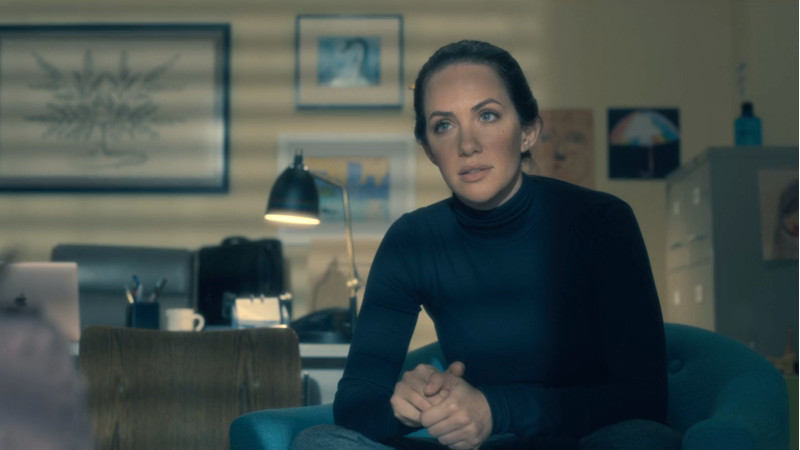
Sometimes I wish I could set up office hours for my acquaintances.
For someone so good at reading others’ emotions, she’s pretty bad at dealing with and/or sharing her own. So she puts on her gloves and fights with her siblings as they’re haunted by her sister’s ghost. Literally and figuratively.
The difference between being an empathetic person and being an empath is hard to explain. Especially when I haven’t entirely figured it out to begin with. I only recently even allowed myself to consider myself an empath, because I was afraid it made me sound conceited, like I thought I was kinder or more understanding than everyone else, which isn’t the case at all. Being an empath isn’t a moral high ground by any means; it just means we are in tune with the emotions of others in a way that can affect us more than it might the next person, regardless of their capacity for empathy. We can care the exact same amount as someone, but the experience can be vastly different.
I once wrote this fairytale about a girl who lives in the woods and comes across a series of strangers who need her help. One older couple’s wagon is stuck on a stone, so she helps them remove the stone from the road and puts it in her pocket. She comes across a boy who’s carrying a basket of stones and twigs; he asks if she’ll remove the pesky stone on top that keeps rolling off, so she helps him… and puts it in her pocket. Her cloak grows heavy and her shoulders grow tired, and when there’s a storm that causes the river to overflow and sweep her in, she almost drowns from the weight of these stones she took from other people. Eventually my plan was to have her learn she can set the stones down, but she ended up building a wall with them around her cabin. When I realized that probably wasn’t the best solution to the problem of taking on other people’s burdens, I abandoned the story.
But the thing is, when I hear about someone else’s pain, it IS like picking up a heavy stone. I carry that pain for longer than I should, feel it deeper than is strictly necessary. And often it’s perfectly fine — I’m happy to relieve someone of their burden, and most of the time, I have the capacity to hold another stone. (It’s why Theo became a psychologist; it’s our skill and we don’t mind using it when we’re able.) And there are some people who know how to show me their stone and describe it to me and maybe let me hold it but don’t leave it with me when they go. So for a long time, it was the best metaphor I could provide. Until I met Theo Crain, who is literally and metaphorically haunted by other people’s pain.
Theo Crain grew up in a tumultuous household, with siblings to take care of, and ghosts to contend with. And maybe that’s why she developed this ability to be hyperaware of her surroundings.
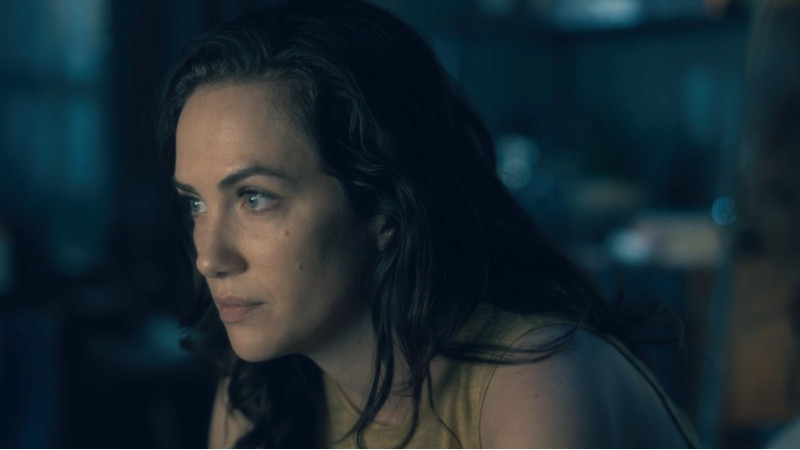
Imagine a feelings fire behind her like the “this is fine” meme.
Or maybe it just helped her navigate it. I too grew up needing to be in tune with the emotions of the adults around me, and I’m also not sure if this was a skill I was born with or one I developed out of necessity. I was a precocious child, so by the time my brother was born when I was four and a half, people often forgot I was still just a little kid. I was told things and complained to about things that my tiny mind probably shouldn’t have had to process yet. And my mother has always been quick-tempered. Granted, it couldn’t have been easy; for almost my entire life she had two kids and two jobs, for example. Plus she comes from a long line of hot-blooded Italians. But for me that meant having to assess and navigate her mood at any given moment. I feel strongly that I developed a sense of humor early on because if she was laughing, she wasn’t yelling. And the opposite was also true — my mother was the person I was spending the most time with, so her joy was my joy. Keeping her happy was in my best interest, too.
Our personalities clashed in a way I don’t think she ever really comprehended. She would start to raise her voice and I would start to cry, which would make her angrier. She didn’t understand that her anger was causing me pain. That I was having to feel my guilt or indignance (depending on whether or not the scolding was justified) and also her anger and disappointment all at once, and it was more than my little body could handle.
So I learned to read her. How to know when it was okay to ask to watch TV and when I should just make myself scarce. When it was a good day to beg to go to a friend’s house and when I should just shut up and get in the car. As I got older, I learned to steel myself a little better, externally. And was often accused of not caring enough. But just because my face wasn’t showing it didn’t mean I wasn’t feeling it, deeply and viscerally. It doesn’t mean I wouldn’t spend hours lying awake in bed thinking about it later. It doesn’t mean I can’t feel it like a fist around my heart.
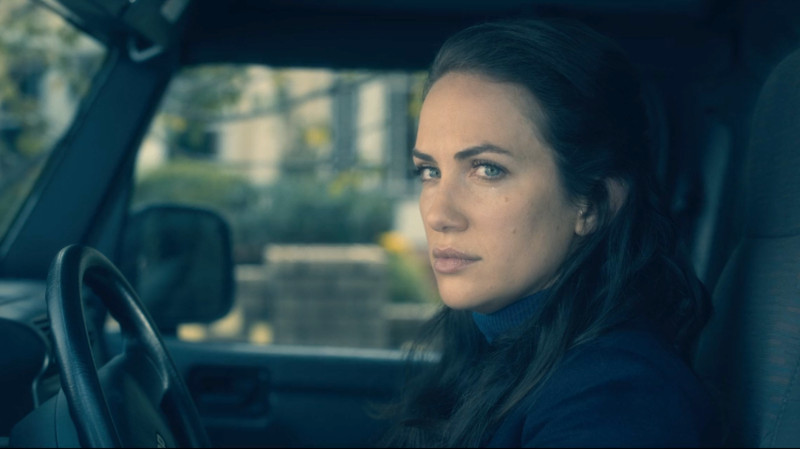
Cars are safe. Cars don’t have feelings.
Being an empath affects me in a lot of ways. I can’t watch the news. It feels like drowning. I have to get my news online, where I can control, for the most part, how much I take in and when. If I go into really old houses or any cemetery, I feel like someone put a heavy blanket over my shoulders. I can feel the weight of that history. I can’t watch shows that involve a lot of second-hand embarrassment without being physically uncomfortable. Small talk grates on me like nails on a chalkboard. My ankles still ache when someone mentions the movie Misery. When I can tell someone is being fake with me (and I can almost always tell when someone is being fake with me) I have to control the urge to shake them by the shoulders and be like DROP! THE! ACT!
It’s also the reason I can’t watch reality TV shows that feel disingenuous to me, but will watch Critical Role (aka a bunch of friends playing D&D and making each other laugh and cry) for hours. I crave authenticity.
From the outside, I might look conflict avoidant. And maybe I am. But it’s not because I don’t think conflict is necessary, or I think everyone should just get along. It’s because other people’s rising frustration can rumble inside me like an earthquake. And when I personally am responsible for hurting or upsetting someone else, it’s like one of those mimic spells fictional witches put on people; every time my words stab someone else, they stab me in turn.
I think this contributed a bit to my hesitancy to come out when I first realized I was a lesbian. My Catholic upbringing made me believe that the people in my life would think it was wrong, and the thought of someone reacting poorly to the news felt impossible to bear on top of being a teenager or a college student and all the other shit I was dealing with. It felt like an emotional response I could avoid taking on.
So when I heard Theo speak that line. That line. “I have enough of my own grief, I don’t need yours, too.” It washed over me like a cold chill then wrapped me up in its warm arms. It’s why I pull away from people when I’m upset instead of seeking out comfort. That line was the truest thing I’d heard in a long, long time.
Theo Crain came to me in a time I needed her most. Much like Theo, dealing with things like funerals and death and mourning can be so overwhelming something can actually snap. In Haunting of Hill House, when Theo touches her little sister’s dead body, she feels so much that she eventually feels nothing. Like the circuits shorted out. And that’s sort of how I felt after my grandfather’s funeral. I’m no stranger to death and grief, but my Papa was the closest person I’ve ever lost. On top of a few other things, I just kind of hit a breaking point.
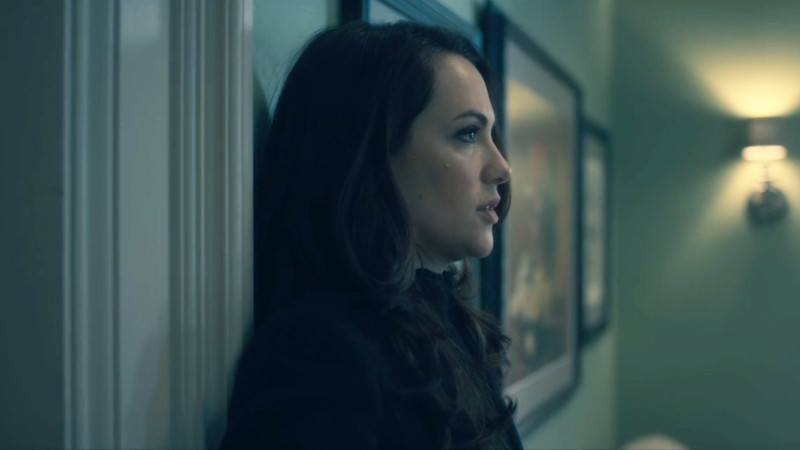
Though it’s less of a clean break and more of a slow smother.
“And I’m just I’m just floating in this ocean of nothing, and I wonder if this is it, if this is what death is, just out there in the darkness, just darkness and numbness and alone.”
The problem with this numbness, this emptiness, is that after a while it starts to feel wrong. At first it’s great; almost freeing. Almost light. But then you realize it’s not sustainable. Because as overwhelming as the feelings can be, and as much as it can suck to have your whole mood thrown off by one friend randomly telling you about their bad day before asking if you’re ready to hear it, the numbness gets old after a while. And scary. And sometimes trying to get out of that space can be hard. And sometimes we can act out. Like when Theo almost kissed her sister’s husband.
“Honestly, I had to do it, because it felt better than nothing. That thorough fucking shame was so much better than that horrible, empty nothing.”
Theo Crain and I also share some bad habits that we use to cope with this shared trait of ours. One is avoidance; redirecting the feelings so you don’t have to feel the ones that are threatening to consume you. Theo used sex and one night stands, while I redirected the emotional pain I was feeling into physical pain because that was easier to understand, to control.
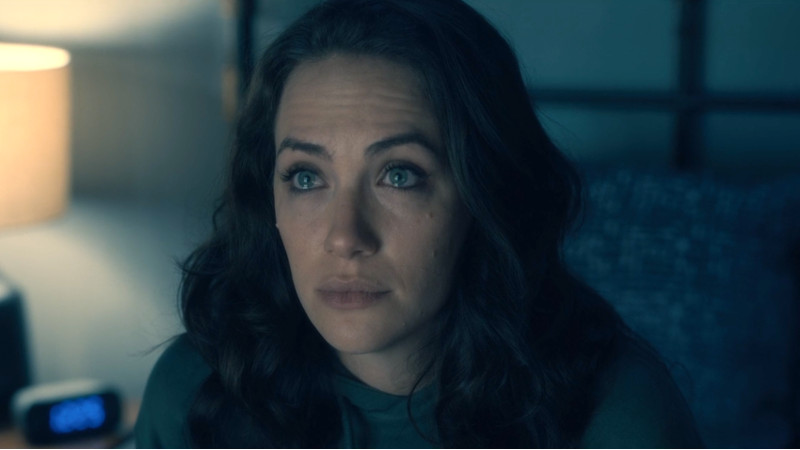
I am bad at crying in front of other people HOW’MEVER I’m also a sympathetic crier. It’s a weird combination to contend with.
And as I got older, I used a different tactic that Theo also employs: avoidance. Theo wears gloves to avoid taking on the feelings of others; I just kept people at arm’s length in a more metaphorical way. Of course, that’s hard to do when you’re an empath. I have complete strangers tell me their whole life story on a regular basis. I’ve had people tell me at the end of our first conversation that they can tell I’m “emotionally intelligent.” Which doesn’t mean I can’t be immature or quick-tempered myself sometimes but I am just usually in tune with the people around me.
Being an empath isn’t all taking on grief and being weighed down by other people’s sorrow. I also get to absorb people’s joy. A friend putting their hand on my arm is like putting a marker down on a paper towel. The longer it’s there, the more the color spreads. The same way a downer of a news story can drain me, a hug from someone I love can fill me back up again. And being able to share in people’s joy — even fictional people or people I don’t know personally — often makes the rest worth it.
Theo learns this eventually, too, choosing to ditch the gloves in the end and surround herself with people she loves whose touch she welcomes. To use the good feelings to balance the bad instead of avoiding feelings altogether. That taking other people’s joy along with the grief can keep you from getting lost in the storm. And maybe someday we’ll both learn how to relieve someone of their emotional burden, but then put it down and walk away from it instead of letting it haunt us.

This is so beautiful, Valerie Anne.
“I can’t watch shows that involve a lot of second-hand embarrassment without being physically uncomfortable” — I always felt I was alone in this !
I can so relate to all of this.
This is why I can’t stand most of Ben Stiller’s movies
It hurts me!! I had such a hard time with shows like Boy Meets World as a kid – I loved the characters but sometimes they’d make such horribly embarrassing decisions and I’d get physically uncomfortable.
I relate to some things here SO MUCH. I describe myself to my therapist as the “peace keeper” in my family. I learned early on to read the moods of my mother to minimise conflict when it seemed effortless in my siblings to not care or ignore it!
I don’t know if I learned to do this because I needed to, or if natural empathic abilities means I stepped into the role more readily ….
I totally recognise what you say about conflict too. It’s not that I don’t value it (in feminist organisations conflict is a great force of powerful change!) but it makes me physically ill. Last summer a friend of mine put her foot in her mouth in a big way and I gained anxiety from that for a month!!! I felt guilty for her social pain when there was no way I could have done anything to stop it from happening
My parents were notoriously strict and I got in COUNTLESS arguments with my mother about what I was and wasn’t allowed to do, and then one time when my brother was in high school, my mom told him he couldn’t go out after dinner, and he just…did. That had literally never occurred to me because the fallout wouldn’t have been worth it to me but my brother was entirely unfazed by the conflict.
Thank you for writing and sharing this.
Thank you for reading!
I keep floating back to this article. Thank you for composing this piece, particularly the last few paragraphs; I printed them off and taped them to my desk as a reminder.
Wow, thank you so much! I’m glad you connected with this. <3
I skipped over this post initially because I don’t watch the show, but I’m so glad I decided to read it after all. You express these feelings and experiences so well. I’ve spent a lot of time working on having healthier boundaries around other people’s moods, and I do a lot better these days, but it’s still always something I have to be conscientious about in order not to lose myself.
It’s one of the hardest thing I’ve had to learn as an adult and I’m still learning it! But I think even just knowing we need to TRY to set boundaries is a huge first step.
I love your “Girl & the Stones” story. It’s perfect. I feel like it could have saved me some therapy. Thank you
I’m a relating so hard to your experience with your mother. I feel for you. A lot unnecessary fear. Same here.